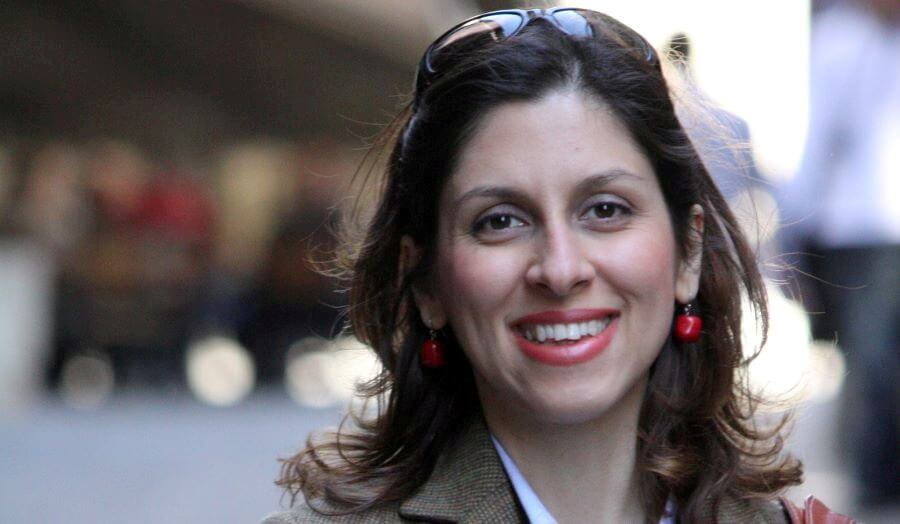Dominic Raab, British foreign secretary, has called Iran’s treatment of Nazanin Zaghari-Ratcliffe torture, and for the first time stated that her arrest is tied to the £400m debt that the UK government owes to Iran, as well as Iran’s nuclear deal. Zaghari-Ratcliffe, who has recently been sentenced to a further year in prison on top of an additional year of house arrest, is currently staying at her parents’ home in Tehran while on bail.
When questioned about whether or not Zaghari-Ratcliffe is being considered as a hostage, Raab recognised that she is being detained arbitrarily and commented that:
“I think it’s very difficult to argue against that characterisation. It is clear that she is subjected to a cat and mouse game that the Iranians, or certainly part of the Iranian system, engage with and they try to use her for leverage on the UK.”
Iran has been using “hostage diplomacy” to force the UK to pay back a £400m debt it received from Iran for a number of Chieftain tanks before the revolution in 1979. The tanks were not delivered to the new regime and there is a reticence to return monies that may be used for funding terrorist activities. James Cleverly, Foreign, Commonwealth & Development Office Minister for the Middle East and North Africa, would not be drawn into joining this debt to the release of Nazanin Zaghari-Ratcliffe in a debate in the House of Commons in April, however he did condemned Iran’s treatment of dual-nationals commenting that:
“The charges against them are illegitimate, they’re unfounded, their incarceration is completely unacceptable and inappropriate.”
Furthermore, he insists that while the UK is taking steps to ensure the release of Zaghari-Ratcliffe, it is the Iranian government which must take the first step, stating that:
“We’re making it very, very clear. It is in the hands of the Tehran regime to release these people and they should be released.”
So far the UK government has maintained that the potential settling of the debt and the dual-national hostage cases are not linked. Boris Johnson has claimed that “There are two entirely separate issues”. However, the Iranian government certainly does not see it that way since both Nazanin Zaghari-Ratcliffe and Anoosheh Ashoori have been told directly that their cases are linked to the military debt.
There was a report on Iranian state TV which claimed that the UK would be paying Iran the £400m for the release of Zaghari-Ratcliffe and that the Iranian nuclear talks would lead to a prisoner swap involving four Americans and four Iranians as well as the release of $7bn of Iranian assets held in overseas bank accounts. However, both the UK and the US have denied these claims.
Iran is no stranger to political hostage negotiations. Former President Mahmoud Ahmadinejad has revealed that the former Emir of Qatar, Sheikh Hamad Bin Khalifa Al Thani, paid $57 million in ransom to release 57 Iranian Revolutionary Guard Corps (IRGC) fighters, who had been captured in Syria in 2012.
Iran’s willingness to use unorthodox methods to bargain with their adversaries is being played out in another arena. Iran stands accused of using a campaign of disinformation in an attempt to swing the upcoming Scottish parliamentary elections in favour of pro-independence. The strategy being that this action would destabilise the United Kingdom and weaken another Western democracy. A report by the Henry Jackson Society think tank has revealed that cyber specialists have been targeting Scottish voters through the use of fake social media accounts on behalf of the Iranian regime. The report stated that:
“Iran has shown itself to be a country which engages in Russian-style disinformation campaigns, repeatedly establishing fake websites and internet accounts in an effort to disrupt the political systems of liberal democracies. Judged within this context, Iran is almost certainly looking to disrupt our current elections, most likely those under way for the Scottish assembly.”

